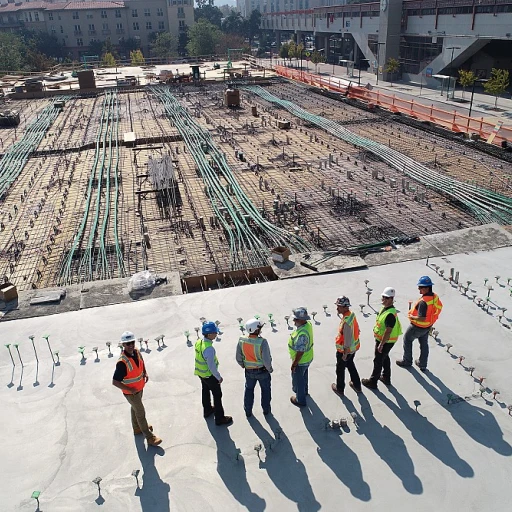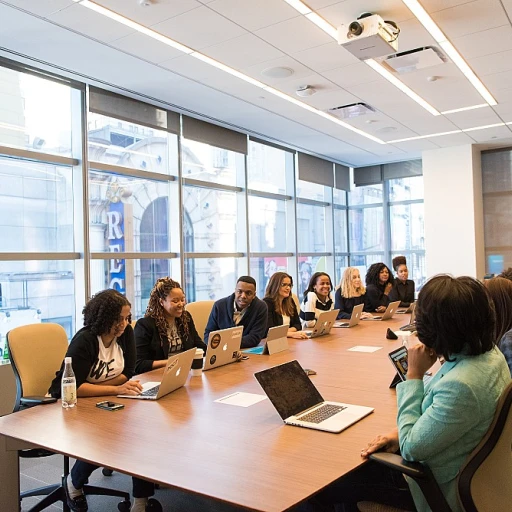
Understanding the Importance of Teamwork in Performance Reviews
The Significance of Teamwork in Evaluations
Understanding the role of teamwork in performance reviews is vital. Team members often collaborate to achieve shared goals, ensuring the team's success through effective communication and problem-solving skills. Highlighting this aspect can help employees understand their contributions and the importance of working collaboratively. Strong teamwork isn't merely about completing tasks. It's about fostering a work environment where positive feedback drives improvement and constructive feedback enhances performance. By consistently focusing on teamwork in performance management, employees can improve their communication skills, decision-making abilities, and overall quality of work. For performance reviews to be meaningful, they must reflect how well an employee contributes to the team. By emphasizing teamwork, review phrases can effectively recognize team effort and cooperation. Positive phrases that demonstrate strong teamwork and communication are powerful indicators of an employee's impact. Teamwork performance reviews also address areas of improvement constructively, gauging how well employees work together. Example phrases and specific feedback are essential in acknowledging team accomplishments and identifying potential challenges, further bolstering an individual's role in the team's growth. Explore more about unlocking the power of performance appraisal phrases for insights on shaping effective feedback mechanisms.Crafting Constructive Feedback for Teamwork
Providing Constructive Insights into Team Collaboration
Crafting constructive feedback for teamwork within performance reviews involves sharing specific and actionable insights with your team members. The goal is to foster a culture of continuous improvement and to enhance the overall team performance. When delivering feedback, it is essential to communicate clearly and respectfully. Begin by acknowledging the positive contributions of team members. This sets a positive tone and demonstrates that you recognize their efforts and value their work. Positive phrases like "demonstrates strong collaboration skills" or "consistently contributes quality work" emphasize an employee's strengths and encourage them to continue thriving in those areas. In discussing areas for improvement, focus on objective observations and provide examples to clarify your points. Phrases such as "enhancing time management during tasks can further improve performance" or "improving communication skills can help in effective decision making" guide employees towards tangible actions they can take. Remember, the aim is to support them in achieving their performance goals. It is important to frame challenges as opportunities for growth. Use empathetic language to ensure that feedback is not perceived as criticism but as a motivation for development. For example, "By working on problem-solving skills, you can increase your impact on team success" conveys a constructive outlook. Lastly, provide clear guidance on how members can implement feedback to enhance their work environment and achieve team objectives. Encouraging open dialogue and offering additional support, such as training sessions or mentoring, can help employees feel equipped and motivated to improve. For more on this approach, you can read our guide on how to provide constructive feedback.Positive Phrases to Highlight Team Contributions
Highlighting Key Team Contributions with Positive Language
In the realm of performance reviews, utilizing positive phrases can significantly boost an employee's morale and motivation. This is especially true when emphasizing teamwork skills and contributions. Here are some strategies and example phrases to highlight the invaluable role each team member plays:- Recognizing Consistent Efforts: Mention how a team member consistently meets or exceeds expectations, contributing quality work to the team’s collective goals. For instance, you might say, "Consistently demonstrates strong problem-solving skills that enhance team performance."
- Celebrating Effective Communication: Effective communication is a cornerstone of successful teamwork. Highlight an employee's ability to articulate ideas clearly and contribute to a positive work environment. Use phrases like, "Exhibits exceptional communication skills that foster a collaborative team atmosphere."
- Emphasizing Adaptability and Decision-Making: Flexibility in handling tasks and making decisions that align with the team’s objectives are crucial. Acknowledge this by stating, "Shows remarkable adaptability in decision-making, which drives team success."
- Acknowledging Collaborative Problem-Solving: Team success often hinges on collaborative efforts. Use review comments such as, "Actively engages in teamwork to tackle challenging tasks, showcasing constructive feedback techniques."
Addressing Teamwork Challenges with Empathy
Fostering a Supportive Environment for Team Development
When addressing teamwork challenges, it's crucial to approach these conversations with empathy and understanding. This ensures that feedback is not only received but also acted upon constructively. Offering feedback on team performance often highlights areas needing improvement, and addressing these challenges effectively can lead to a more cohesive work environment.- Listen actively to team members: Before providing feedback, understanding each team member's perspective is essential. This demonstrates strong communication skills and allows for better decision making when implementing changes.
- Use constructive feedback: Rather than focusing solely on problems, shift the narrative towards solutions. Encourage members to propose ideas for overcoming teamwork hurdles.
- Highlight team strengths: Incorporate positive phrases to remind employees of their valuable contributions, instilling motivation and morale.
- Address conflicts head-on: Avoid bottling up issues. Regularly conduct performance reviews that address underlying tensions, guiding teams towards resolution and improved collaboration.
Balancing Individual and Team Achievements
Recognizing Individual Contributions within Team Dynamics
In many performance reviews, it's important to appreciate both individual and team achievements. Recognizing the efforts of an employee while considering the bigger picture of team dynamics is crucial for effective performance management. Let's explore how to balance these aspects.
When preparing review comments, emphasize the unique strengths each team member brings to the table. Use positive phrases that highlight their skills such as "demonstrates strong leadership," "consistently delivers quality work," and "excels in time management." These phrases reinforce the idea that each employee's performance contributes to the overall success of the team.
Acknowledging individual problem-solving abilities and decision-making skills also enhances the review process. Constructive feedback should not only outline areas for improvement but also inspire team members to embrace their roles within the team. By framing feedback constructively, you foster a work environment that embraces growth and adaptability.
Nurturing a Collaborative Work Environment
Balancing feedback on individual achievements alongside team successes can reinforce the importance of collaboration. Encouraging employees to share their perspectives and experiences enriches the team's communication skills and fosters an inclusive atmosphere.
Example phrases could include "demonstrates openness to collaboration" or "positively contributes to team discussions," which highlight the collective goals reached through effective teamwork. By consistently providing positive feedback along with areas for improvement, you help team members see their value in both individual and collaborative contexts.













